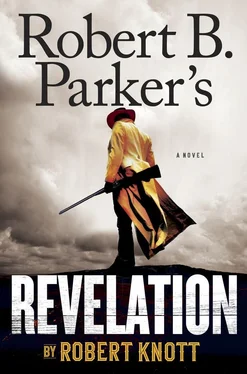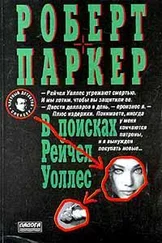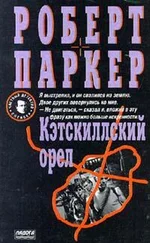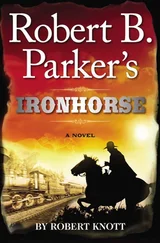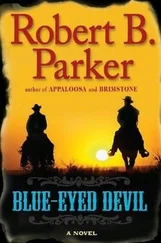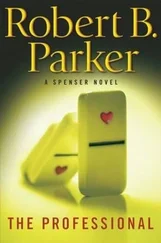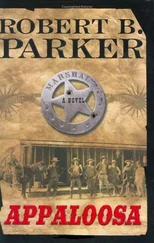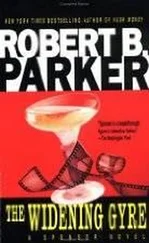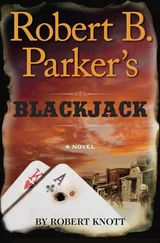“Yes,” Allie said. “And Mrs. Vandervoort comes from one of the finest bloodlines in all of New York City, and who better to get advice from?”
“Bloodlines?” Virgil said. “Hell, that’s sounds like horse talk, Allie.”
“It certainly is not, Virgil Cole,” said Allie. “And what would you know about it anyway?”
“Not much, I suppose,” said Virgil.
Margie laughed. Her laughter was light and funny and she made Allie laugh, and me, too.
“Isn’t she the cutest?” Allie said, looking at Margie.
“She is,” I said.
We said good-bye to the women and left them looking at Allie’s place: Mrs. French’s Fine Dresses, a yet-to-be-fully-realized establishment, and walked up Vandervoort Avenue toward the Western Union office.
“Think that young lady might have the sweets on you, Everett.”
“I’ll reciprocate in kind,” I said.
Virgil looked at me as we walked.
“Give back,” I said.
We walked for a bit, looking at all the brick structures.
“Vandervoort is the only road called an avenue in the whole of Appaloosa, ain’t it?” Virgil said.
“Is,” I said. “The newest, extra-fancy addition.”
“Yep,” Virgil said, shaking his head. “To a town that is getting too big for its breeches.”
“Allie is right in the middle of it,” I said.
“Damn sure is,” Virgil said.
“When we first showed up here there was but a few streets,” I said. “Now there is more than you can count.”
“Not hard to get lost,” Virgil said.
I laughed. “Damn sure is not,” I said.
When the Vandervoort Brick Factory opened in Appaloosa, it changed the face of the town almost overnight, and the change was most obvious here on Vandervoort Avenue.
Where wood and adobe had been the main construction material for growth and maintenance of Appaloosa, everything was now mostly being constructed of brick. Many of the wooden structures were transforming their tired and weathered storefronts to brick. The growing town was rapidly changing into a city, and the central figure that was bringing about that change was Vernon Vandervoort, a Dutch businessman from St. Paul.
Vernon Vandervoort was a colorfully debonair character in his mid-sixties with a slender but strong physique, and was always polite whenever we’d met. His face was healthy and handsome, his expressive blue eyes and gold-colored skin framed by a thick head of longish and unruly gray-blond hair that was always a messy contrast to his impeccable attire. Vandervoort always wore an elegant dark blue gold-buttoned coat over a leather vest. It was a look that suggested military, but Vandervoort was a civilian through and through.
He fashioned himself as a full-service building enterprise that not only offered the physical location for new businesses and institutions wishing to move to a better, more refined destination, but also provided loans for new ventures.
He was instantly an accepted and respected addition to the prominent members of Appaloosa’s growing number of do-gooders, too. They liked the fact that Vandervoort brought in money and jobs, and that his plan was to create an infrastructure that grows from within. Wealth begets wealth was Vandervoort’s motto.
Vandervoort, the brick factory, and his whole organization were a huge success.
“I reckon you could even call his endeavor here a damn near empire,” I said.
“In less than three years, Vandervoort built his own goddamn avenue thoroughfare,” Virgil said.
Allie’s shop was on his own stretch of road with multiple business spaces — some of the spaces he owned personally and had employees operate, some spaces he rented, and others he outright sold. One of the businesses that Vandervoort owned and operated was a theater with booths and balconies where different kinds of entertainment was taking place most every night.
The fancy theater, town hall, and the impressive wide street all sported his namesake, the Vandervoort Theater, the Vandervoort Town Hall, and Vandervoort Avenue. Between the Town Hall and the theater, Vandervoort had his own stately offices and the sign above the door was simply chiseled VANDERVOORT in large block letters.
As Virgil and I strolled down Vandervoort Avenue, we noticed that almost every dwelling he’d had for sale or lease was now occupied.
“He damn sure knows how to do it,” I said.
“Seems so,” Virgil said.
“Good you was able to get a shop on this street for Allie,” I said.
“You think?”
“I do.”
“Well, she’s happy,” Virgil said.
“Think you being a U.S. Marshal had anything to do with it?”
“Likely didn’t hurt,” he said.
“No telling what might come of this,” I said.
“Ain’t that how it always is?”
We walked for a moment without saying anything, observing all the people supporting and managing the various businesses on Vandervoort Avenue. When we got to the end of the brick structures, Virgil stopped and looked up to the street sign.
“What’s the difference between a street and an avenue, Everett?” Virgil said.
I shook my head and looked at him.
“Well, hell, you got me there, Virgil.”
When we got to the Western Union office, Sheriff Chastain and Deputy Book were standing on the porch, waiting on us.
“Received a wire from Yaqui,” Chastain said as we walked up.
“Whatcha got?” Virgil said.
Chastain shook his head.
“Been an escape... at Cibola.”
“When?”
“Not sure exactly. Wire came in from Sheriff Stringer there in Yaqui. Said be on the lookout for escapees.”
“Escapees?” I said.
Virgil glanced to me, then back to Chastain.
“How many?” he said.
Chastain shook his head.
“Don’t know. Stringer said he’d be in the wire office to get into the details with you, wanted to connect with you personally.”
We stepped into the office that was operated by Willoughby, a fleshy young fella with a permanent smile on his face. Virgil had Willoughby send a wire back to Yaqui to let Stringer know that he was present and waiting. A wire returned within the next minute that stated something urgent came about and Sheriff Stringer would be contacting us again momentarily. I read the original notes between Appaloosa and Yaqui that alerted us, and there was nothing else to it beyond what Chastain said.
“Be right out here,” Virgil said with a nod.
Virgil, Chastain, Book, and I stepped back out onto the porch.
“Said be on the lookout. Has to mean this is not necessarily fresh news,” I said.
“Why the delay, do you think?” Book said.
“Hard to say,” I said.
“Cibola is a far piece,” Chastain said.
“What is it,” Book said. “About two hundred or so miles from here?”
“’Bout that,” I said.
“So a number of days back,” Book said.
Virgil looked to me and nodded a bit.
“Don’t know I ever heard of anybody getting outta that place,” Chastain said.
“It’s a far ways, seventy-five miles from the closest town,” I said.
“Used to be a lot of mining camps through there,” Chastain said. “Suspect there still are.”
“Dry-as-hell country, too,” Book said.
I nodded.
“Wouldn’t think it’d be that easy for those that get out to get gone,” Chastain said.
Virgil looked at his watch.
“We’ll know soon enough,” Virgil said.
“Well,” Chastain said as he pushed off from leaning on the wall, “Book, let’s you and me get back to it.”
Book nodded and lifted up off the hitch rail he was leaning on.
“We been cleaning, reorganizing the office, mending this and fixing that,” Chastain said. “Tired of looking at all the shit that needed attention.”
Читать дальше
